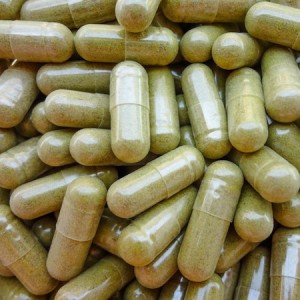The Atlantic Magazine published an article by Dr. Robynne Chutkan on Dec 12, 2013, entitled The Future of Probiotics. Her vision, although high on the yuck factor, is actually supported by recent research and very exciting.
This is an interesting article in which the author, a gastroenterologist, imagines a future where we will be able to go to high end boutiques to shop for caviar-priced stool samples obtained from indigenous donors living in undeveloped pockets throughout the world. The feces being sold would be pure – no exposure to the elements of our modern world that have hurt our gut microbiomes (the mix of bacteria, fungi and viruses that inhabit our intestinal tract and that greatly contribute to our health).
The fecal samples for sale would not have been impacted by processed, fatty food, antibiotics, GMO ingredients, hormones or food additives among other contaminants. Nor would they have been affected by an overly clean environment that had been stripped of many helpful bacteria by antibacterial cleaning products. The wares for sale in this shop may have been collected from rainforest tribe members, or other people living outside the developed world. The stool sample is proposed by Dr. Chutkan to be a sort of “super probiotic.”
Why anyone would pay top dollar for “virgin” poo makes no sense without understanding the promise that fecal transplants have shown with certain medical conditions.
Science has shown that probiotics (good, live bacteria) can be helpful for promoting health. However, taking a probiotic supplement to cure an existing disease can be trickier. Whether a probiotic capsule can make it through the hydrochloric acid that exists in the small intestine in sufficient quantities to colonize the large intestine is not a sure thing.
Additionally, choosing which probiotic supplement to take can be a bit scattershot. There are tens of thousands, if not more, bacteria that cohabitate us. Only a minute percentage of these probiotic have been studied and thus we are only starting to learn which bacteria are helpful for which conditions. And we can only culture and grow a tiny percentage of those. Hence it can be difficult not only to know the optimum mix of bacteria that should be included in the supplement but also to obtain them in a supplement to target a specific health concern.
Stool is actually 70% bacteria – more than a billion bacteria in each fluid drop of feces! With a fecal transplant (called fecal microbiota transplant or FMT in the article), stool samples from healthy people are introduced directly into your large intestine where the probiotics found in the sample can multiply and colonize the gut – driving out the unhealthy bacteria residing there.
The samples would contain a wide range of bacteria, not only known and studied beneficial microbes, but also those that have not yet been examined. Feces are transplanted to the large intestine in several ways. It can be delivered via a colonoscopy, through a tube fed in through the nose and down into the large intestine, by pills designed to release their contents only in the large intestine or by a stool-containing suppository.
C. difficile is a potentially deadly disease caused by antibiotic resistant disease-causing bacteria (the Clostridium difficile bacteria). It can be devastating and is extremely resistant to treatment, but fecal transplants from healthy individuals have been highly effective at controlling or even curing it. There has also been some promising results shown from fecal transplants to address obesity, Crohn’s disease and ulcerative colitis.
In case you weren’t grossed out already, the author discusses the issue of coprophagia (eating one’s own feces, which has been done occasionally by people and animals throughout history) as a compelling precedent to FMT. My husband now is considering that his family’s Golden Retriever from childhood may not have been as dumb as everyone assumed. Although, if your own gut is already out of whack, you’re probably better to eat someone else’s feces rather than your own.
Further Reading
- The Atlantic (December 12, 2013). The Future of Probiotics





